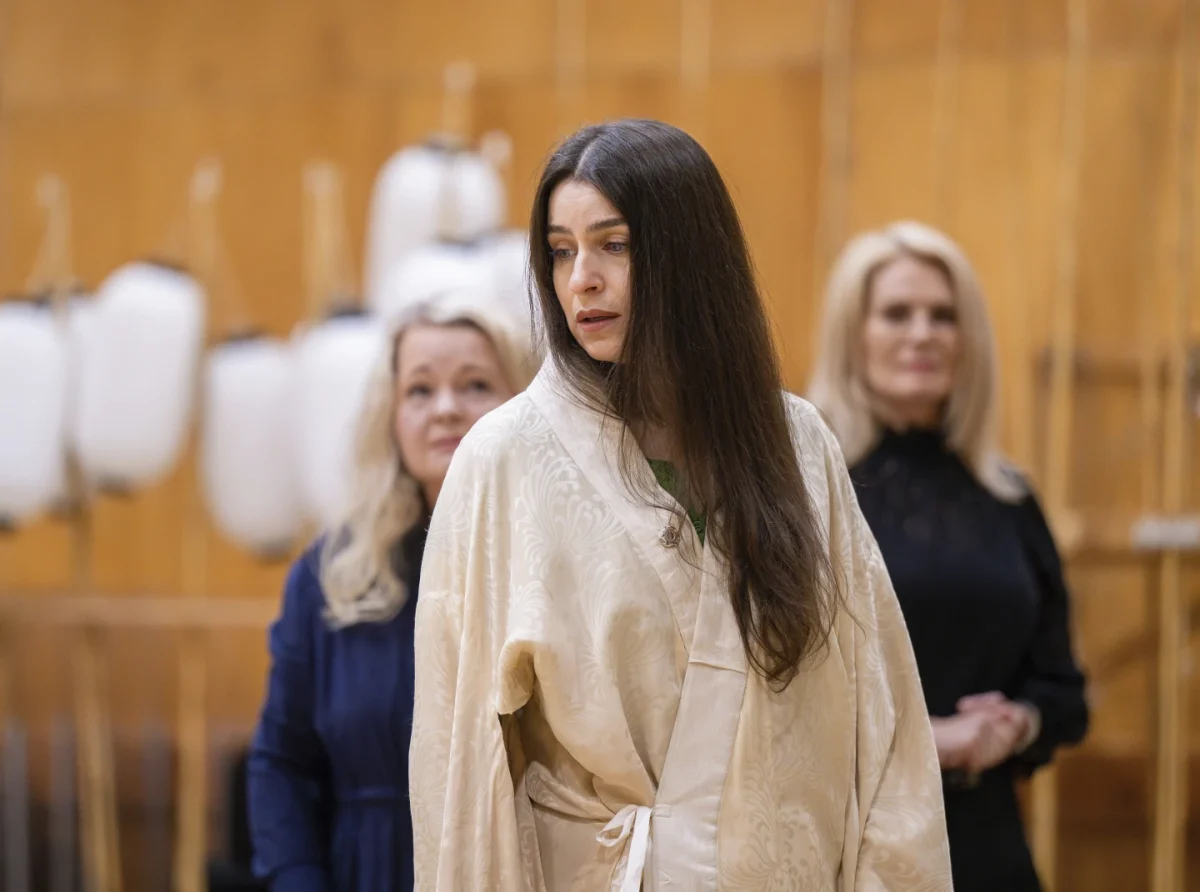March marks the seven-year anniversary of ARTEMIS, an all-women jazz supergroup from New York City. Founded on International Women’s Day in 2017, the group celebrates diversity and innovation. In 2023 they were named Jazz Group of the Year by the DownBeat Readers Poll. This week, they took part in Oberlin’s Artist Recital Series. Before their concert March 13, they held a career talk at the Birenbaum Innovation and Performance Space. A few dozen students gathered to listen to the group discuss their musical influences and artistic journeys. The five women shared the lessons they learned on their paths to becoming the musicians they are today.
The members of Artemis are no strangers to success. Following their dynamic 2018 performance at the Newport Jazz Festival, Blue Note Records President Don Was immediately offered the group a record deal.
“On a sunny August afternoon in 2018, I was among the thousands of fans attending the Newport Jazz Festival who had their minds blown by ARTEMIS,” Was said. “Although each individual member of this supergroup is a bona fide jazz titan, these incredible musicians dwell in the rarefied air of bands whose whole is greater than the sum of its already sublime parts.”
Every musician in ARTEMIS brings an impressive individual portfolio to the table. ARTEMIS musical director and pianist Renee Rosnes takes the lead with around 20 other collaborative albums, while trumpeter Ingrid Jensen and drummer Allison Miller each have approximately a dozen albums under their belts. Based on their individual accolades, ARTEMIS’ explosive achievements shouldn’t come as a surprise. In between concerts on the premiere stages of North America, the group compiled their debut album, ARTEMIS, in 2020. Since their first album, ARTEMIS, and subsequent release of In Real Time in 2023, the group has undergone some personnel changes. The iteration of ARTEMIS that graced the Birenbaum stage Wednesday consisted of Renee Rosnes, Ingrid Jensen, Allison Miller, Nicole Glover, and Noriko Ueda.
“First of all, the goal is to become a wonderful musician,” Rosnes said when opening the discussion. “So you must study and practice and play as much as you can while you’re in college, and have fun doing it. You know, there probably won’t be another time in your life where you’re as free as you are now.”
Although this freedom may be obscured by classes and assignments, college should be a time of open exploration. However, Rosnes went on to explain that every successful musician continues to evolve and study. She encouraged honesty to oneself when considering weaknesses and strengths. The process of exploration never ends for someone pursuing a career in the arts.
Glover, the saxophonist, spoke next. She grew up listening to jazz but did not realize until young adulthood that people still experimented and performed in the genre. Upon discovering this, she surrounded herself with people who shared her love for jazz. After moving from Portland, OR to New York City, Glover’s goal was to make her presence known. This took the form of performing at music sessions, usually informal gatherings held in someone’s home. Every member of ARTEMIS attended these sessions at some point in their career as opportunities to network and practice, sometimes up to three gatherings per day.
“There is a presence that makes people aware of you,” Glover said. “And a presence that makes people remember you.”
Miller echoed Glover’s sentiments. She said that official auditions do not play a big role in the jazz world, so you must take every opportunity to play with others and present your sound. As a drummer, Miller has had many chances to perform with renowned artists including Natalie Merchant, Brandi Carlile, and Toshi Reagon. She described how their success has influenced her.
“None of those people, like Natalie, Brandi, Ani, have any formal training: I think only one of them graduated high school,” Miller said. “And none of them read music. But they’re all brilliant artists. They really followed their path.”
Ueda similarly forged her own path. Born in a small suburb of Osaka, Japan, she didn’t even know jazz existed for many years. After hearing a jazz version of an anime opening with vibraphone and a walking bass line, she was shocked and knew she had to learn more. After studying classical voice at the Osaka College of Music, she moved to Boston to attend Berklee College of Music. She graduated with a degree in Jazz Composition in 1997 and relocated to New York City. Using connections from Berklee, she gradually worked her way onto the scene, first joining the DIVA Jazz Orchestra and finally becoming a founding member of ARTEMIS.
Before accepting audience questions, Rosnes recalled a lesson she learned from jazz saxophonist, composer, and band leader Wayne Shorter. He had requested that she join his new band on tour, but there was one prerequisite: watch the 1979 movie Alien. The band gathered together to see the film, cramming onto couches. Halfway through, Shorter used the extraterrestrial threat as a metaphor for the musical ferocity he hoped for from his group. The advice stuck with Rosnes, and has influenced her musical expression ever since.
“There’s a classic scene in this movie where a creature bursts out of a chest,” Rosnes said. “Wayne stopped the movie right there and said, ‘You see that? That’s how I want my band to sound.’”









